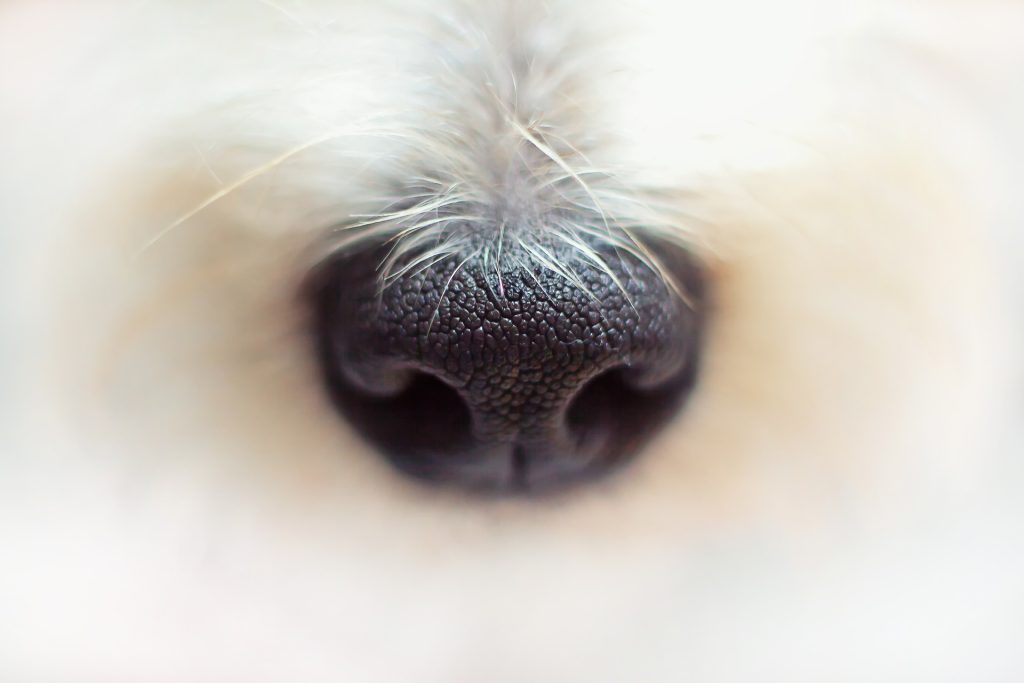
Quickly and efficiently screening incoming travellers for COVID is currently beyond present technology, but dogs — with their keen sense of smell that has aided humans for thousands of years — may be a solution.
An Ekurhuleni-based company is in the final stages of training dogs to be deployed as COVID sniffers at South African points of entry, just in time for the expected third wave, eNCA reports.
Currently, the most widespread test is the rapid antigen (lateral flow) test, which has been shown to produce more false positives for COVID than real detections in low prevalence situations — such as travellers arriving in a country.
Alternatively, the polymerase chain reaction (PCR) test has the greatest sensitivity but is time-consuming and expensive. And most currently available tests involve nasopharyngeal swabs — an unpleasant experience for most people.
Dogs, with their keen sense of smell have long been used to sniff out drugs and explosives. In recent years they have also been trained to sniff out certain cancers and malaria, although they are not regularly used for this.
Using medical sniffer dogs has the advantage of being extremely quick and could be used in resource-constrained settings.
In the first months of the pandemic, many wondered whether dogs could in fact smell the disease, and began training dogs to see if it was possible.
Past studies had already established that the volatile organic compounds (VOCs) released in body odour change during respiratory infections. VOCs associated with COVID infection showed a clear distinction between infected and uninfected individuals, suggestive of a strong, distinctive smell.
Initial trials with trained sniffer dogs at airports in France, Lebanon and FInland found that the dogs were even capable of detecting infection before it could be picked up with clinical tests.
A recent study led by the London School of Hygiene & Tropical Medicine (LSHTM) estimated that a plane with 300 passengers could be screened in 30 minutes with two sniffer dogs, and only those passengers identified by the dogs would be required to take a PCR test.
The study, which is not yet peer-reviewed and which is currently available as a pre-print, found that dogs could be trained to detect COVID in 94.3% (test sensitivity) — comparable to the gold standard of PCR tests with 97.2% sensitivity. They also have a specificity of 92%, meaning that they have a low rate of false positives.
Dr Claire Guest, Chief Scientific Officer at Medical Detection Dogs, which assisted in the study, said: “These fantastic results are further evidence that dogs are one of the most reliable biosensors for detecting the odour of human disease. Our robust study shows the huge potential for dogs to help in the fight against COVID.
“Knowing that we can harness the amazing power of a dog’s nose to detect COVID quickly and non-invasively gives us hope for a return to a more normal way of life through safer travel and access to public places, so that we can again socialise with family and friends.”
Besides simple detection, the dogs could also serve as a visible deterrent to people wanting to travel with fake COVID passports, the authors said.
The findings of their study also provided valuable knowledge which could be applied to future pandemics.
The authors acknowledged the limitation that the dogs were conducting the tests in a controlled environment as opposed to the real world.
Primary source: London School of Hygiene & Tropical Medicine
Secondary source: eNCA
Journal information: Pre-print available online

